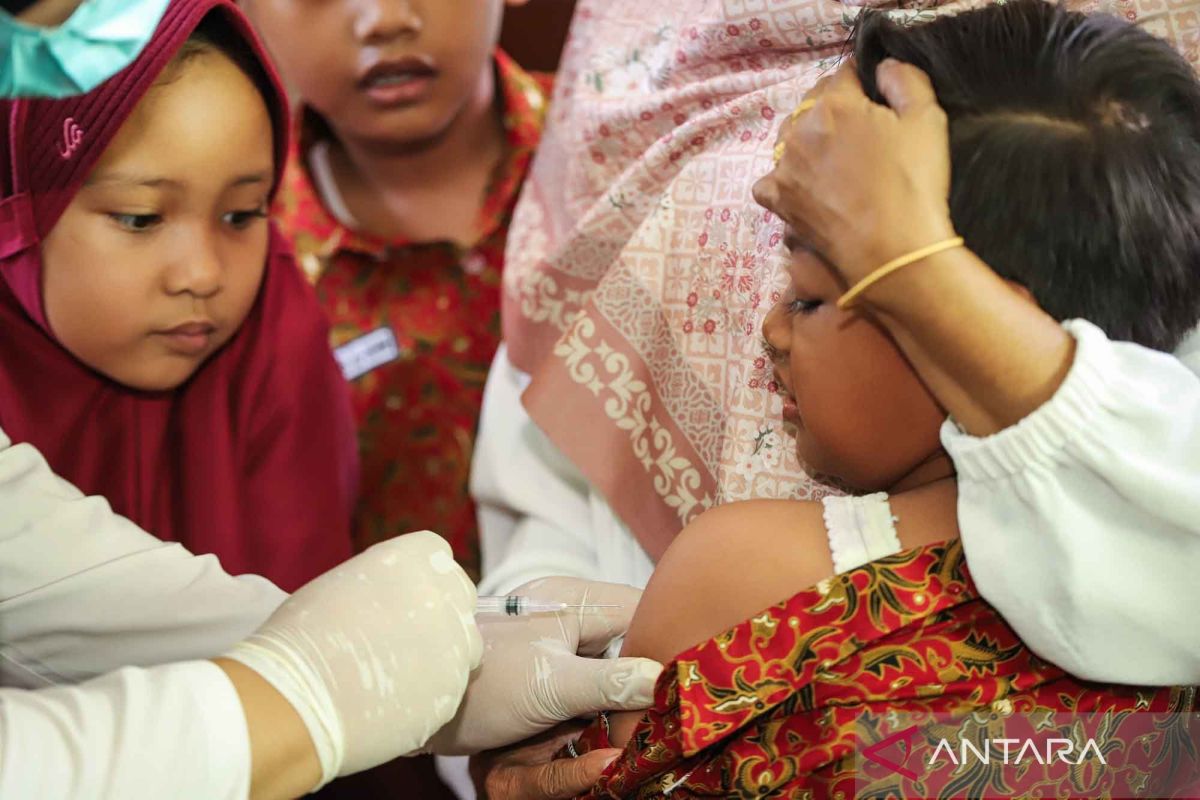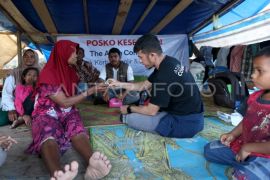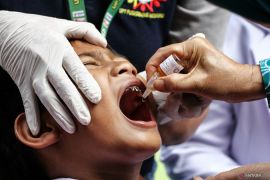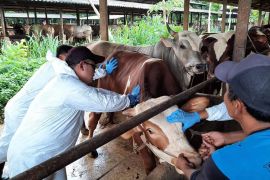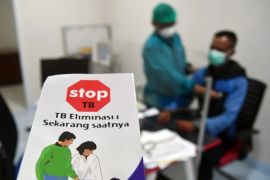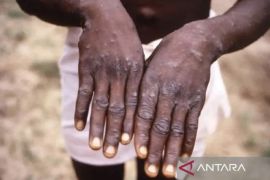Due to this surge in cases, local health authorities have declared an “extraordinary event.”
As of August 24, 2025, the Health Ministry recorded 46 measles outbreaks in 42 districts/cities across 14 provinces, including Sumenep District.
Measles is a contagious respiratory infection characterized by a skin rash all over the body and flu-like symptoms caused by the rubella virus. The disease can be prevented through immunization.
However, low immunization coverage and parental vaccine hesitancy have been said to be the causes of the surge in measles cases in Indonesia.
Parents' fear of vaccine side effects, as well as hoaxes and misinformation about vaccine ingredients being said to be non-halal, have contributed to the low immunization rate.
According to the ministry's Director of Immunization, Prima Yosephine, parents who are still hesitant to bring their children to receive immunizations have resulted in a decline in child immunization rates, including measles immunization rates, which have decreased over the past three years.
She explained that in 2022, the measles immunization rate, specifically the MR1 vaccine administered to 9-month-old children in Indonesia, reached 102.2 percent.
In the following years, the immunization rate declined to 95.4 percent in 2023, 92 percent in 2024, and 45.1 percent as of August 24, 2025.
This decline in the immunization rate is very concerning, considering that children—whose immune systems have not yet been fully developed—are very susceptible to infection from various diseases.
Therefore, vaccination is considered an important aspect of the child’s growth and development process, which should not be ignored both by parents and the government.
Safe
The Health Ministry ensures that all government-provided vaccines, including those listed in the National Immunization Program, are safe, free, and of high quality.
They have also obtained distribution permits from the Food and Drug Monitoring Agency (BPOM).
The Indonesian government is working to ensure that children across the country receive complete vaccination to protect them from several diseases.
Complete immunization refers to the administration of multiple vaccines throughout a child's developmental stages, from birth until they reach elementary school.
The complete routine immunization consists of basic immunizations for infants aged zero to 11 months, including one dose of HBO, one dose of BCG, three doses of DPT-HB-Hib, four doses of polio drops (OPV), one dose of polio injection (IPV), and one dose of Measles-Rubella.
For children aged 18 to 24 months, immunization includes one dose of DPT-HB-Hib vaccine and one dose of Measles-Rubella.
The Health Ministry emphasizes the importance of the comprehensive vaccination schedule, pointing out that immunization has proved effective in significantly reducing the number of cases of these diseases.
Moreover, it highlights that immunization can prevent up to five million deaths annually from diseases, which means it is very important for the future generation of Indonesia.
According to the 2023 World Health Organization (WHO) data, Indonesia ranked sixth globally in the number of unvaccinated children.
WHO recorded that in the 2019-2023 period, as many as 1,356,367 children in Indonesia did not receive any immunizations—referred to as zero dose.
Hence, the measles outbreak in Sumenep must be a wake-up call and a crucial opportunity to advocate for the importance of children’s immunization.
The government has urged all parents and caregivers to immediately take their children to the nearest health facility to receive immunization.
Acceleration
In response to the measles outbreak in Sumenep, the government is accelerating vaccinations, targeting 78,569 children in the region.
All children targeted for the measles vaccine are aged 9 months to 6 years, with the program lasting 21 days, from August 25 to September 14, 2025.
Other efforts include increasing the detection of suspected measles cases through surveillance and mapping of high-risk community groups (infants, pregnant women, seriously ill children, and malnourished children), as well as conducting further epidemiological investigations to identify the source of transmission and close contacts of cases.
The Indonesian Pediatric Society (IDAI) emphasizes the need for children to be vaccinated against measles as the disease is more contagious than COVID-19.
According to IDAI, the risk of measles transmission is 12-18, compared to 8-10 for COVID-19.
This means that if one person contracts measles, they risk infecting 12 to 18 people. Meanwhile, if one person contracts COVID-19, they risk infecting eight to 10 people.
Chairperson of IDAI, Dr. Piprim Basarah Yanuarso, emphasized that immunization coverage for highly contagious cases must be very high to achieve herd immunity.
For measles, immunization coverage must be above 95 percent to achieve community immunity, he noted. Outbreaks of such diseases can occur when community immunity drops by 60 percent.
The outbreak is the result of a significant decline in immunization coverage, he added.
Therefore, continuing education of the public and raising their awareness to vaccinate their children against infectious diseases needs to be carried out.
"Immunization is a basic right of children. Children have the right to live healthily and be protected from dangerous diseases," Piprim emphasized.
Related news: Ministry ensures safety of all government-supplied vaccines
Related news: Suspected kidney failure cases in W Java may be measles: minister
Editor: Azis Kurmala
Copyright © ANTARA 2025
